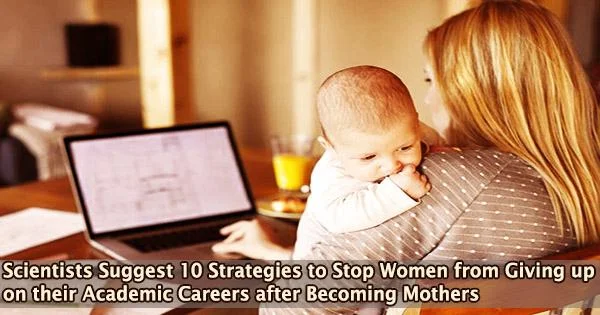After having their first child, women frequently leave academia due to the difficulties of parenting. According to American surveys, around 50% of women scientists in the country quit their fields after having children.
A group of mothers who work in science from Spain have developed ten urgent recommendations for academic institutions to implement in order to improve the environment for women who want to stay in the field after having children.
These recommendations address a wide range of topics, including career progression prospects, work-life balance, and support during pregnancy. In order to combat mental health issues, discrimination, and harassment, they suggest measures such as support during pregnancy, childcare, breastfeeding, and the school phase, actions aimed at organizing, making research and teaching activities more flexible and equitably distributed, and measures for the career advancement of mothers.
This work, published in the journal PLOS Computational Biology under the title “Ten simple rules for a mom-friendly academia,” highlights the need for greater representation of women in science, including mothers, because equality is a fundamental right and, in addition, there are studies that certify that diverse work environments are more productive and innovative.
According to Esther Sebastián-González, lead researcher from the Department of Ecology at the University of Alicante (UA), the benefit of implementing many of these ideas will not only be for trans mothers and fathers, but also for parents, caregivers of dependents, women, and even the academic community at large.
Academic institutions must take the initiative to advance gender equality and give everyone the tools they need to succeed in their scientific careers, including mothers.
The proposals put up by this group of female scientists include policies to promote flexible work schedules and remote working, as well as technical assistance for pregnant women performing field and laboratory work.
Maternity and paternal leave should be considered in the selection procedures and eligibility standards for grants and research jobs, the report further emphasizes. Additionally, they demand the establishment of nurseries and nursing rooms at work and at scientific conferences, flexibility in working hours and locations, and giving parents of young children preference when choosing teaching hours during school hours.
The authors raise additional concerns in order to support mothers’ career advancement, such as extending the eligibility period for fellowships and grants for scientific mothers to at least 18 months per child, eliminating the requirement for geographic mobility for fellowships and grants for scientific mothers, and developing special grants for those who have taken extended breaks from their careers.
Additionally, they suggest reducing women’s unpaid and unacknowledged work, such as serving on recruiting or thesis committees, and distributing and enforcing anti-harassment and anti-discrimination rules throughout all research organizations. They also advocate equalizing the administrative burden between men and women.
















